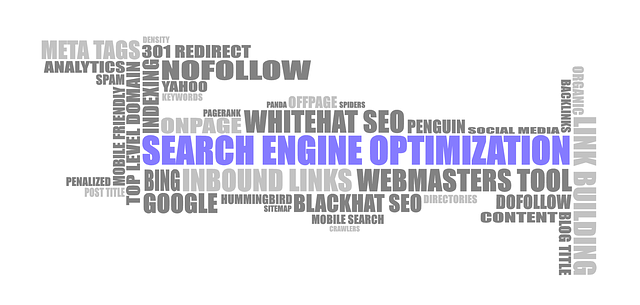AI-powered search has transformed digital interactions by interpreting user queries using natural language processing (NLP) and machine learning, delivering personalized, contextually relevant results from diverse data sources. This technology, driven by advancements in semantic understanding, enables advanced search engines to process vast amounts of data from text, images, and multimedia, revolutionizing information retrieval. While AI search faces challenges like bias mitigation, privacy protection, and potential misuse, future trends include more contextual interactions and personalized experiences, promising to further enhance user satisfaction and engagement in the digital landscape.
“Explore the future of information retrieval with an in-depth look at ai-powered search. This article demystifies the capabilities and potential of artificial intelligence in transforming traditional search techniques. From understanding the basics to delving into its profound impact on accuracy and relevance, we uncover how AI is reshaping online experiences. Additionally, we explore the ethical landscape and discuss emerging trends setting the course for ai-powered search‘s future. Get ready to dive into this revolutionary technology.”
- Understanding AI-Powered Search: The Basics
- How AI Transforms Traditional Search Techniques
- Benefits of AI in Enhancing Search Accuracy and Relevance
- Challenges and Ethical Considerations in AI Search
- Future Trends Shaping the Landscape of AI-Powered Search
Understanding AI-Powered Search: The Basics

Artificial intelligence (AI) has transformed many aspects of our digital world, and search is no exception. AI-powered search goes beyond traditional keyword matching by leveraging machine learning algorithms to understand user intent and context. It analyzes vast amounts of data, including natural language queries, user behavior patterns, and contextual clues from the content itself, to deliver more relevant and personalized results.
The basics of AI-powered search involve several key components. First, it employs natural language processing (NLP) to interpret user queries, breaking them down into meaningful components. Then, using machine learning models, it matches these queries with relevant data sources, whether that’s webpages, product catalogs, or knowledge bases. Advanced techniques like semantic understanding and contextual awareness enable the system to grasp the nuances of language and provide answers that are not just keyword-based but also contextually appropriate.
How AI Transforms Traditional Search Techniques

Artificial intelligence (AI) has brought about a paradigm shift in traditional search techniques, revolutionizing how we access and interact with information. The advent of AI-powered search enables machines to understand complex queries and deliver more relevant results, moving beyond keyword matching. This transformation is particularly evident in natural language processing (NLP), where AI algorithms can comprehend context, semantics, and user intent.
AI-driven search engines leverage machine learning models to continuously learn from user behavior, improving accuracy over time. They can interpret user preferences, personal history, and even sentiment, offering personalized search experiences. Moreover, these systems can process vast amounts of data from diverse sources, including text, images, and multimedia, to provide comprehensive insights. This capability is a game-changer in information retrieval, making AI-powered search an indispensable tool for today’s digital landscape.
Benefits of AI in Enhancing Search Accuracy and Relevance

The integration of artificial intelligence (AI) into search technologies has brought about a remarkable transformation in how we interact with information. AI-powered search offers enhanced accuracy and relevance, ensuring users receive precise results tailored to their queries. Traditional search algorithms often struggle with ambiguous or complex queries, but AI excels at understanding user intent and context. This advanced capability is particularly beneficial in dealing with natural language queries, where nuances and subtle meanings can significantly impact search outcomes.
AI algorithms employ machine learning techniques to analyze vast amounts of data, enabling them to learn from user behavior and feedback. As a result, they can continuously refine search results, ensuring that the most relevant and up-to-date information is presented. This dynamic approach enhances user satisfaction by providing accurate and timely responses, fostering a more engaging and productive search experience. Moreover, AI-powered search can adapt to individual preferences, making it an indispensable tool for personalizing online experiences.
Challenges and Ethical Considerations in AI Search

Artificial intelligence (AI)-powered search is transforming how we access information, offering unprecedented efficiency and capabilities compared to traditional methods. However, it’s not without its challenges and ethical considerations. One significant issue is ensuring fairness and mitigating bias in AI search algorithms. These systems are only as unbiased as the data they’re trained on; if the training data contains societal biases or skewed representations of certain groups, the AI may perpetuate or even amplify these inequalities in search results.
Privacy is another critical concern. AI-powered search often relies on vast amounts of user data to personalize and refine its results. Protecting users’ privacy and ensuring their data is handled securely and transparently is essential to maintaining trust. Moreover, the potential for misuse of AI search capabilities, such as manipulation or misinformation through targeted search algorithms, highlights the need for robust safeguards and regulatory frameworks.
Future Trends Shaping the Landscape of AI-Powered Search

The future of AI-powered search is brimming with exciting possibilities, as advancements in natural language processing and machine learning continue to shape this dynamic field. One prominent trend is the evolution towards more contextual and conversational search experiences. AI models will become adept at understanding user intent behind queries, allowing for more precise and relevant results. This shift promises to enhance user satisfaction and foster a sense of natural interaction with search engines.
Additionally, personalized search results are expected to gain prominence. By leveraging user data and behavior patterns, AI algorithms can deliver tailored content, ensuring that each individual receives a unique and optimized search experience. This trend not only improves user engagement but also opens up new avenues for businesses to connect with their target audiences effectively. As AI-powered search continues to evolve, we can anticipate even more innovative features and capabilities that will reshape the way we interact with information online.
Artificial intelligence (AI) is revolutionizing the way we interact with information, transforming traditional search techniques and offering unprecedented accuracy and relevance. As AI-powered search continues to evolve, it’s essential to address ethical considerations while embracing future trends that promise even more sophisticated and user-friendly experiences. By understanding the basics, recognizing benefits, and navigating challenges, we can harness the full potential of AI-powered search to enhance our digital lives.
